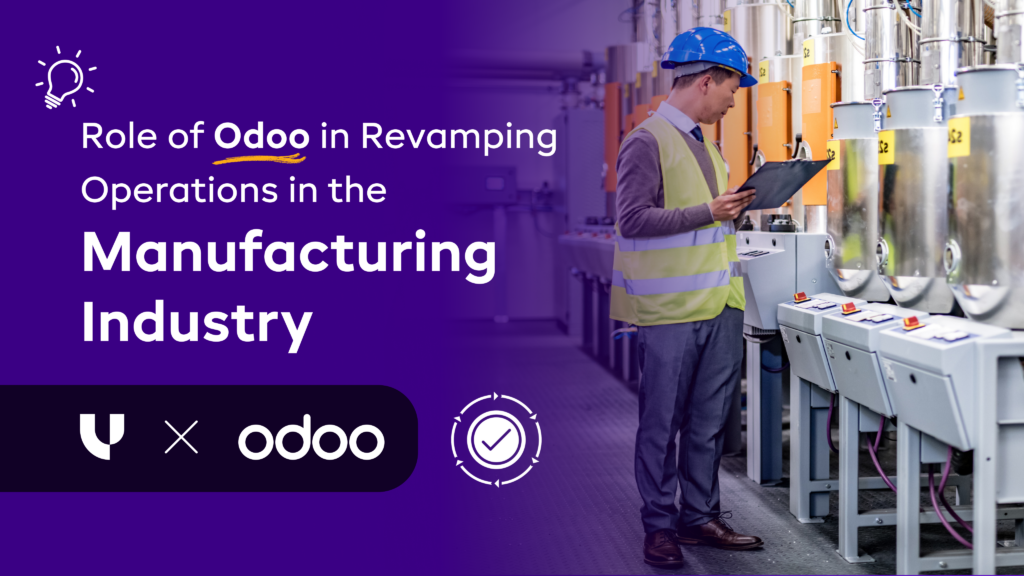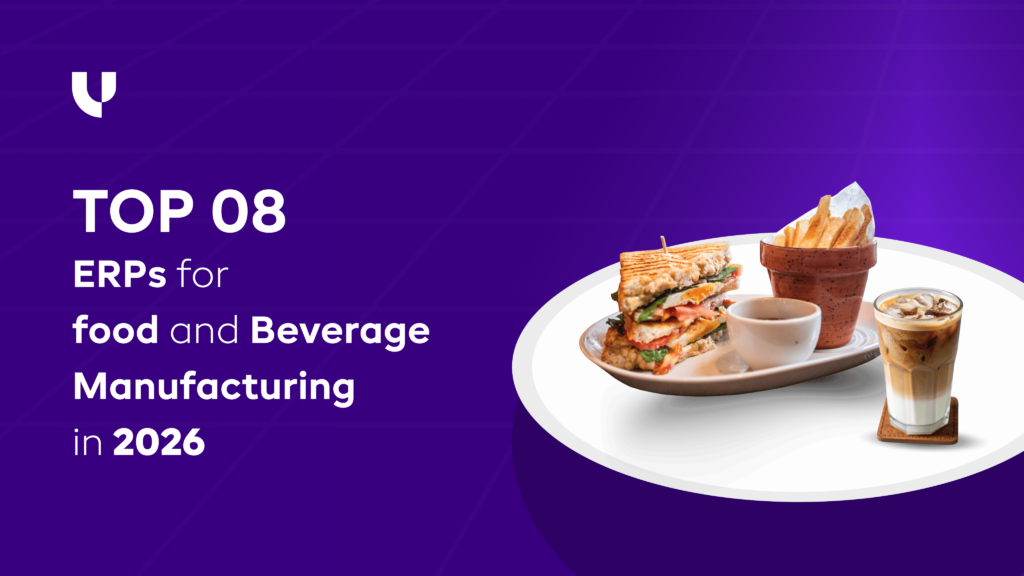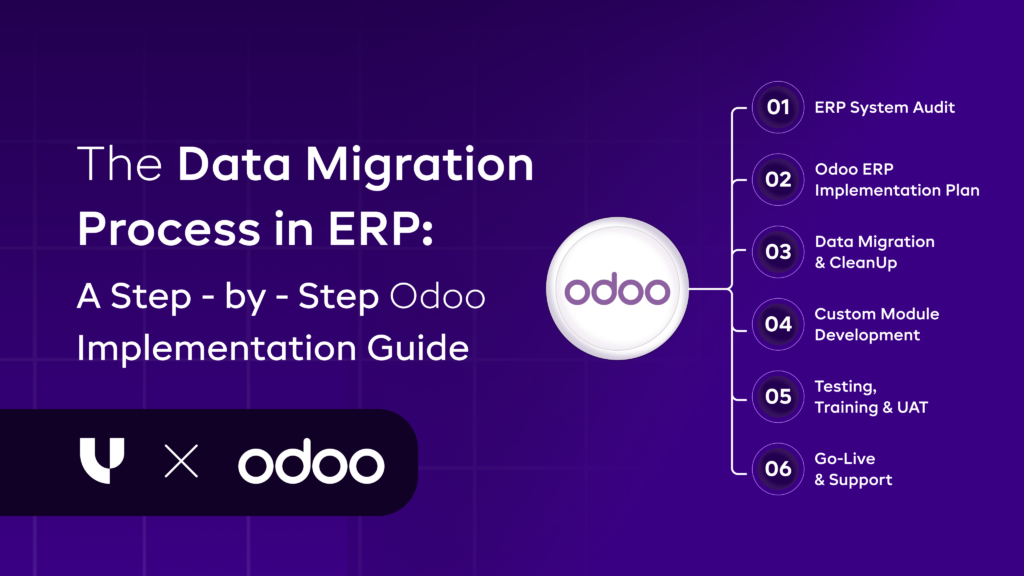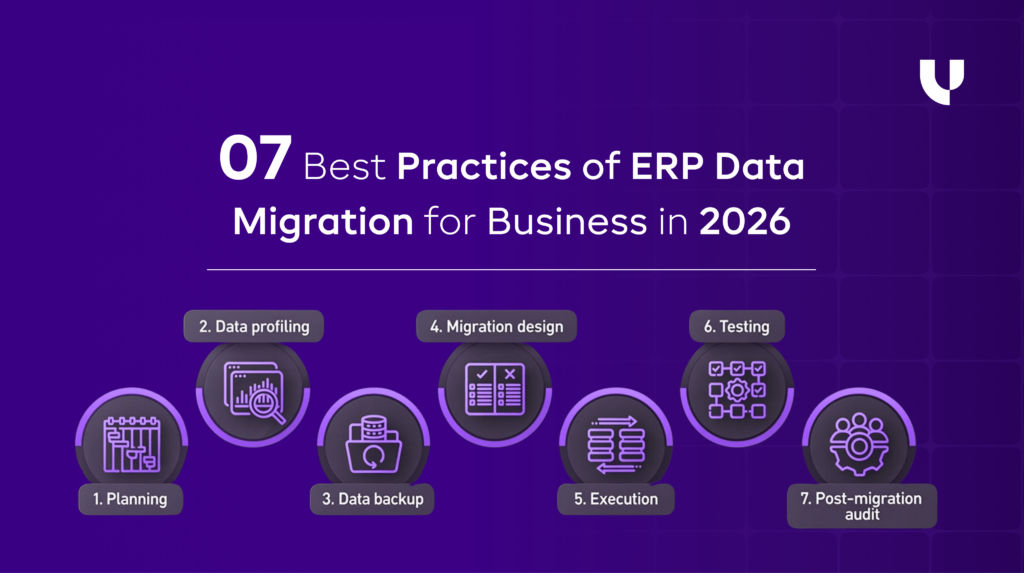Role of Odoo in Revamping Operations in the Manufacturing Industry
Published on September 30th 2025

Introduction
Modern manufacturing enterprises function differently from classic manufacturing firms did years ago.
Manufacturing companies strive to enhance their processes, increase effectiveness, and promote efficiency to meet the evolving needs of their customers. They also want to remain competitive in the industry.
As the demand for more speed, accuracy, and efficiency grows, firms utilize Odoo manufacturing to simplify their operations. Odoo is one of the best ERP platforms for manufacturing, offering a range of modules specifically designed to help manufacturers streamline their workflows.
But what role does the ERP play in revamping operations in the industry?
Let’s find out as we learn more about the role of Odoo in the following sections.
Overview Of Odoo For Manufacturing
The manufacturing industry faces intense competition, and efficiency and precision become crucial factors during such events.
Odoo ERP is a groundbreaking industrial application that streamlines production, enhances communication, and boosts productivity. Odoo ERP for manufacturing optimizes operations and production with its wide toolbox and feature set.
Odoo's ERP solutions are primarily focused on manufacturing, which includes:
- Smart inventory management
- Supply chain management
- Quality control, production scheduling
Its adaptable features and user-friendly interface help firms increase production levels, reduce downtime, and streamline procedures.
For trading businesses that require robust handling of stock, procurement, and sales across multiple lines, our Odoo General Trading Solution provides a unified platform tailored for distribution and trading workflows.
Challenges Faced By The Manufacturing Industry
The manufacturing industry deals with massive amounts of data daily.
Ranging from inventory to consumer purchases, data is the new normal. As digitalization gains traction, businesses are seeking business models enabled by intelligent systems. Therefore, companies must manage their operations using an ERP system.
Here are some of the issues that firms encounter when they lack an ERP system in place.
- Forecasting Demand: To minimize waste, spoilage, and overproduction or underproduction, firms must accurately assess customer behavior and expectations. Markets are becoming more volatile and unpredictable, making it more difficult to forecast trends and plan production and distribution.
- Inventory Planning: When inventory is managed manually, errors are inevitable, resulting in data inaccuracies, stock shortages, and poor decision-making, all of which can hinder returns. Data accuracy and consistency are critical to a manufacturing company's seamless operation.
- Lack of Trained Workforce: To maintain the quality of their services and reputation, manufacturing enterprises must employ and retain skilled staff. HR may struggle to select eligible applicants if the applications are vast and there is no efficient processing mechanism in place.
One of the most effective strategies to boost returns is to reduce manufacturing costs while maintaining an efficient supply chain.
However, quality must not be compromised. Manufacturing plants must automate their operations and management.
7 Benefits of Odoo ERP for Manufacturers
Improve Manufacturing Efficiency
Odoo Modules automate manual chores, integrate numerous business processes, and provide real-time information that enables enterprises to optimize their operations.
Users can maintain their business operations by leveraging the modules, while manufacturers can minimize downtime, reduce errors, and increase efficiency, resulting in a seamless manufacturing process.
Enhanced Forecasting
With comprehensive Odoo analytics and reporting tools, manufacturers can correctly forecast consumer demand.
It is helpful to anticipate future inventory requirements and material availability while scheduling production. This solution ensures that all resources are allocated correctly, minimizes waste, and increases on-time delivery rates.
Improved Collaboration
Odoo's integrated platform makes it simple for anyone to manage procurement, production, and quality management teams.
Odoo ensures that everyone works in sync by centralizing communication and making data accessible to all users, thereby reducing the likelihood of misunderstandings and errors.
Proper Access to Information
Odoo also provides access to real-time data. Managers can quickly access key information, including production status, inventory levels, quality measures, and more. It increases visibility, allows for speedier decision-making and immediate resolution of issues, reducing disruptions, and keeping the entire production chain operating smoothly.
Improves Productivity
Odoo automates various time-consuming manual procedures by employing modules such as Shop Floor Management, Material Requirements Planning (MRP), and IoT Integration.
This enables employees to focus on high-value jobs, increase productivity, and ensure that production objectives are met on schedule.
Cost-effective
Odoo also enhances resource management, automates tedious tasks, and optimizes the entire supply chain. It also eliminates material waste, labor expenses, and extra inventory to prevent loss.
However, Odoo's pricing strategy ensures that businesses only pay for the capabilities they use, making it a highly cost-effective solution compared to its rivals.
Real-time Reporting
The Odoo platform offers a range of reporting tools that provide precise information on overall production efficiency, product quality, resource utilization, and financial performance.
Manufacturers will receive timely information that will help them identify opportunities for improvement, optimize production strategies, and make informed decisions to achieve their desired business outcomes.
Want to start a project with us?
Empowering businesses to achieve greatness through strategic guidance and innovative solutions.
Book A Demo
Challenges & Solutions When Implementing Odoo Modules for Your Manufacturing Operations
Data Migration Issues
Implementing Odoo and migrating data into new systems, such as inventory levels and production plans, often results in data inconsistencies, delays, and disruptions to the manufacturing process.
Utilizing Odoo's data migration tools or hiring individuals with experience in deploying Odoo will help ensure that the data is migrated correctly. To mitigate these concerns, regular testing and validation are conducted during the transfer process.
Customization Complexity
Odoo's high level of customization makes it challenging for manufacturers to tailor the system to their own business needs.
At that point, manufacturers begin by adopting Odoo's basic modules, then add modifications tailored to their individual needs and requirements. Custom modules and processes can be developed based on recommendations from Odoo-certified partners. This allows for efficient Odoo adaptation without overcomplicating the system.
Employee Resistance and Training
When transitioning to Odoo or other ERP systems, employees may experience foreign interfaces. This immediately disrupts company procedures and causes operational inefficiencies.
To avoid this risk, all personnel who use this system must receive rigorous training. Odoo offers a user-friendly interface that provides specialized job training sessions, as well as ongoing support, to ensure a seamless transition.
Integration with Legacy Systems
Many factories utilize outdated software or technology that does not integrate seamlessly with the Odoo system. This lack of connection causes data inefficiencies, manual data entry, and time delays in the manufacturing process.
Odoo stands out as the ideal solution, as it provides a variety of connectors and APIs, enabling connections with other software systems, including legacy platforms.
Furthermore, manufacturers must work with Odoo specialists to create bespoke connections or middleware solutions that enable seamless data flow between systems.
Change Management and Process Overhaul
Several significant modifications have occurred during the implementation of an ERP system, such as Odoo, to enhance the business process. Aligning production workflows, inventory management methods, and reporting structures with Odoo can be intimidating.
The most effective strategy to minimize interruptions is to deploy Odoo correctly. Manufacturers should focus on one part of the business at a time, such as inventory or procurement, before expanding globally. Clear communication and teamwork are essential for exploring advanced Odoo functionalities.
What’s the Cost Involved in Implementing Odoo ERP In The Manufacturing Industry?
The entire cost of deploying Odoo ERP is not fixed; it is determined by variables such as the scale of the deployment, customisation, and the utilization of professional Odoo Development Services.
Odoo Community Edition
Odoo Community Edition is a free version of the software with basic features. It's ideal for small businesses that don't require major alterations. Even if you pay nothing to acquire the application, you may incur fees connected with implementation, training, and assistance, depending on your needs. The development method will be adjusted to incur additional costs.
Odoo Enterprise Edition.
Odoo Enterprise Edition offers premium features and support, making it well-suited for large organizations and those that require the most sophisticated capabilities. Costs include a per-user fee based on the number of users, as well as installation and customization costs for training and assistance. It is often more expensive than the Community Edition but offers more flexibility and capacity.
Generally, Odoo implementations can start at a few thousand dollars. Successful Odoo installations in the industrial sector include more than just software installation; they typically entail Odoo consultation services, specialized training, and ongoing support. Each of these elements influences the ultimate cost.
Conclusion
Manufacturing in the digital era requires more than spreadsheets and unconnected software.
From integrated processes to real-time visibility and intelligent automation, Odoo ERP for manufacturing offers all of this and more, making it the ideal option for businesses seeking to modernize their operations.
Odoo enables organizations to enhance productivity and expand confidently by providing better inventory management, precision planning, and data-driven insights. The transition to Odoo becomes not only simple but also revolutionary when you work with a proper implementation partner, such as Uncanny Consulting.
Experience the change professionals can bring to your operations - book a call today!

About Author


